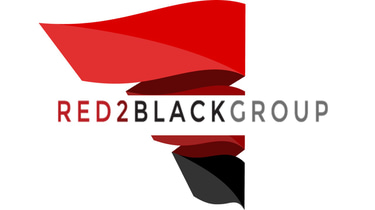Training Millennials
Executives often ask: "Can you train millennials to be great sellers?" The answer? Yes. Absolutely. I have hired, trained, managed, and developed millennials into top sales performers.
SALES STRATEGIES & TACTICS FOCUSEDLEADERSHIP & MANAGEMENT
Patrick Mersinger
7/15/20202 min read


Executives often ask: "Can you train millennials to be great sellers?" The answer? Yes. Absolutely. I have hired, trained, managed, and developed millennials into top sales performers.
Like every generation, they communicate differently, learn differently, and see the world through their own lens. Understanding these differences is the key to unlocking their potential. Many executives struggle to connect with younger employees because they have spent years working alongside people with similar backgrounds and work habits.
Millennials are bright, adaptable, and highly coachable. The negative press? Unwarranted. The same criticisms thrown at millennials today were once aimed at Gen X.
From my experience, two key factors shape millennial success in business:
📌 Human Resources – The "Nice Police" Effect
📌 24/7 Access – Work and Life Integration
1. The "Nice Police" Effect – How HR Has Changed Workplace Training
HR used to handle hiring, compliance, and benefits. Today? It often acts as the complaint department. If an employee gets their feelings hurt, they report it.
This shift makes traditional hard-edged training nearly impossible. Some of the best lessons I ever learned in business were tough, direct, and uncomfortable. But they made me better.
Example: A former boss (let’s call him KS) assigned me to lead team meetings. Twice in a row, he cut me off after five minutes, shut the meeting down, and told me I was unprepared.
I thought I was prepared. I had the right data, the right slides, the right script.
What KS was teaching me:
🔹 Success does not happen in a vacuum. You must anticipate secondary and residual impacts.
🔹 Knowledge goes beyond surface-level prep. You must understand how every decision affects the bigger picture.
🔹 He wanted thinkers, not robots. He did not spoon-feed lessons—he expected us to figure it out.
Today? That approach would get a manager fired. Employees would run straight to HR.
This shift hurts long-term development. Hard coaching separates those who push for greatness from those who do the bare minimum. Millennials need real coaching—not forced niceties.
2. 24/7 Access – The Always-On Generation
Millennials do not shut off. They are wired into work, social life, and personal commitments all at once.
🔹 They answer emails at 2 AM on a Saturday.
🔹 They send texts instead of emails—sometimes with Bitmojis.
🔹 They blend work and life in ways older generations never did.
The traditional workday? Gone.
I used to email employees on a Sunday, expecting a response Monday morning. Today? A millennial might reply instantly.
This always-on lifestyle requires a shift in management.
How to Adapt:
✔ Create urgency around your needs. Frame priorities in ways that tap into their fast-paced work style.
✔ Match their consumption habits. Use Slack, texts, or quick, direct emails instead of long memos.
✔ Help them balance work and life. No off-switch = high burnout risk. Teach them how to pace themselves.
The Bottom Line: Mutual Adaptation Wins
🔥 Millennials need to deliver for executives. HR should teach resilience, not just mediate complaints.
🔥 Organizations need to understand millennial work habits. Plugged-in workers must learn balance.
🔥 Great managers evolve. The best leaders adapt to new generations while keeping performance standards high.
Millennials bring energy, adaptability, and fresh thinking. Harness it correctly, and they will drive revenue and innovation. 🚀
Sales Consultancy
Building Long Term Revenue
Connect now:
© 2025. All rights reserved.
Try our Free Elevator Pitch Tool:
